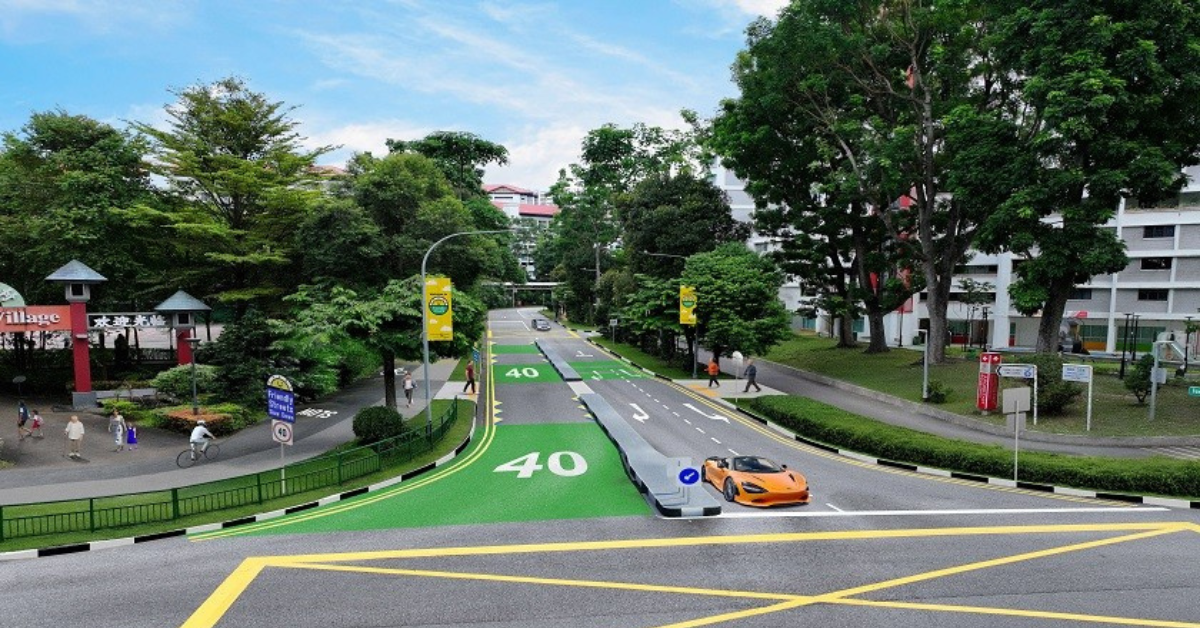In the grand narrative of Singapore’s automotive evolution, certain names emerge not with fanfare, but with the quiet persistence of a tide that changes the shoreline. The transformation of commercial transport in this island nation is being written not in headlines, but in the daily journeys of countless vehicles navigating the arteries of Southeast Asia’s most dynamic economy.
ABS Group stands as both witness and architect of this metamorphosis—a company whose story began in 2007 when two industry veterans, Edward and Joseph, recognised that Singapore’s automotive landscape was poised for fundamental change. What started as Abwin Bus has evolved into something far more significant: a bridge between Singapore’s industrial past and its electric future.
The Architecture of Evolution
The numbers tell a story of remarkable transformation:
-
Singapore’s economy expanded by 4.0% in 2024, its fastest pace since the pandemic
-
The automotive sector experienced a 42.4% surge in new vehicle registrations (43,022 passenger units)
-
Commercial vehicle sales rose 14% to 8,470 units
-
Singapore Automotive Market projected to grow by 18,191 units from 2023-2027 at 6% CAGR
This growth represents more than a statistical triumph—it embodies a nation’s collective pivot towards sustainable mobility.
The Molecular Structure of Trust
What distinguishes the ABS enterprise is not merely its catalogue of vehicles, but the molecular bonds of trust it has forged within Singapore’s commercial ecosystem. As the authorised sole distributor of Golden Dragon buses—amongst China’s most prestigious manufacturers—ABS Bus has inherited both opportunity and responsibility.
The company’s portfolio reads like a taxonomy of Singapore’s transport needs:
-
Commercial vehicles spanning the spectrum from compact delivery vans to heavy-duty lorries
-
Electric vehicle solutions, including the pioneering EV ABS Van and EV ABS Truck
Yet beyond this inventory lies something more profound: an understanding that vehicles are not merely machines, but vessels of human ambition.
The Grammar of Service
ABS Bus has developed an ecosystem of integrated solutions:
-
JJE Auto Care: In-house workshop with 24-hour roadside assistance and diagnostic equipment
-
ABS Financial: Direct financial services established in 2017 for customer financing needs
-
Comprehensive support: Insurance, maintenance, and leasing services under one roof
-
Quality control: Vertical integration across the entire customer journey
This creates “ecosystem advantages”—the ability to control quality and service from purchase to maintenance.
The Electric Awakening
Perhaps nowhere is ABS Group’s prescience more evident than in its early embrace of electric vehicle technology. As Singapore advances towards its ambitious goal of complete vehicle electrification by 2040, the company has positioned itself not as a follower but as a catalyst of change.
The EV ABS Truck exemplifies this vision: a 10-foot electric lorry capable of achieving 250 kilometres on a single charge, designed specifically for Singapore’s urban logistics challenges. With regenerative braking technology and CATL battery systems—representing the pinnacle of lithium iron phosphate innovation—these vehicles embody the marriage of environmental consciousness and commercial pragmatism.
The statistics supporting this transition are compelling:
-
Singapore boasts over 3,600 public EV charging stations, with numbers growing annually
-
Government provides CVES rebate of S$15,000 for electric vehicles
-
Electric vehicles can reduce fuel costs by up to 35% compared to traditional alternatives
-
Zero tailpipe emissions contribute to Singapore’s net-zero goals by 2050
The Cellular Memory of Excellence
In customer testimonials, one discovers what might be called the “cellular memory” of excellence—stories that reveal character through action. Customers speak of sales representatives who drive vehicles to workshops for inspection, who maintain communication long after purchase, and who treat each transaction not as a closure but as the beginning of a relationship.
This approach has earned ABS Group a reputation that transcends mere commercial success. It represents what business theorists call “relational capital”—the accumulated trust that becomes a company’s most valuable asset.
The Metabolic Pathways of Growth
ABS Bus has created systems enabling continuous adaptation:
-
Strategic partnerships with international manufacturers for cutting-edge technology access
-
Market relevance through deep roots in Singapore’s commercial landscape
-
Growth environment: Singapore automotive market value-added activity of US$3.6 billion in 2024
-
Sustained expansion: Projected 1.49% compound annual growth rate
These factors create favourable conditions for companies positioned at the intersection of tradition and innovation.
The Future Written in Present Tense
Singapore’s automotive transformation creates clear patterns:
-
Government mandate: End ICE sales by 2030, complete phase-out by 2040
-
Infrastructure development: 60,000 charging points planned across the island
-
Market dynamics: Convergence of policy, technology, and demand
-
Phase transition: Systems reorganising around sustainable principles
Companies like ABS Group become the translators of this vision into daily reality.
The Synthesis of Purpose and Progress
In the end, what emerges from ABS Group’s story is something larger than automotive commerce. It is a meditation on how organisations, like living systems, must continuously adapt whilst maintaining their essential character. The company’s evolution from Abwin Bus to ABS Group mirrors Singapore’s transformation—from regional trading post to global hub of innovation.
As Edward and Joseph’s vision continues to materialise through every vehicle delivered, every service rendered, and every customer relationship nurtured, one recognises that business, at its finest, becomes a form of social architecture. In the quiet transformation of Singapore’s streets, ABS Group writes its chapter in the grand narrative of human mobility—one journey at a time.

